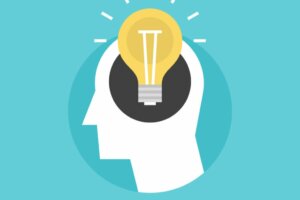What Exactly Makes a Person Smart?


Written and verified by the psychologist Sergio De Dios González
Intelligence is a common field of study in psychology. In fact, its history and development have inspired a good part of the methodology of this subject. Yes, perhaps the main headache regarding the study of intelligence lies in its measurement. In other words, it’s impossible to determine if a person is smart or not when you don’t know what makes them so to begin with.
There are many definitions of intelligence. In fact, a quick online search will give you many results on it, some of which are rather disparate and a tad scary.
For some, being smart is the art of solving problems while, for others, it’s the art of posing them. Then there are those for whom it represents the art of making decisions. Anyway, “arts” that sound like mere skills are somehow a reminder that empty intelligence without productivity has little value and doesn’t make sense, at least to others.
Continue reading to discover some answers about what makes a person smart.
“You are not entitled to your opinion. You are entitled to your informed opinion. No one is entitled to be ignorant.”
-Harlan Ellison-

Was Einstein smarter than Mozart?
This question somehow confronts music lovers with physics lovers. Why? Because it, at least, gives the benefit of the doubt to those creative types whose work is either enjoyable or tragic. This is because there’s a certain amount of pain or effort, as a rule, in most people’s understanding of genius.
Similarly, many argue one should approach the concept of intelligence from a social perspective. That is, from your need to relate and the advantages you can obtain for yourself, for the immediate environment, or for society at large.
For example, if you were to watch primates, you’d know about their complex social environment. They often cheat and also perform behaviors one could describe as altruism. There’s even an open debate about whether they have a “theory of mind”. A sense of self as a unique individual separated from others in the group (Gallup, 1982; Hauser, MacNeilage & Ware, 1996).
The intellectual capacity of a smart person
Intelligence is directly tied to intellectual capacity. It’s about being able to learn, remember, and use new information to solve problems and adapt to new situations. There are some illustrious names like Charles Spearman or Francis Galton at the beginning of the study we mentioned above.
However, Binet stands out because the context in which he developed his work was educational. Also, his interest in studying intelligence was about improving the educational system. He wanted to know if there was a way to intervene in children with learning difficulties.
Along with his colleague, Theodore Simon, Binet designed a test to try to measure the intellectual ability of children. To do so, they created individual test items for the children to answer according to their age.
For example:
- A three-year-old should be able to point to their mouth and eyes.
- A nine-year-old should be able to name the months of the year in order.
- Finally, a twelve-year-old should be able to name sixty words in three minutes.
This assessment was the first IQ test:

What makes a person smart?
Socrates went down in history as many things but perhaps the most important one was his design of a method to produce knowledge: the maieutic. Those who use it need to be skilled in the art of asking questions.
By pulling this same thread, science advances when people are able to ask important questions before getting relevant answers. Thus, perhaps the main sign of intelligence is being able to generate questions.
In contrast, a person skilled in solving logical problems is usually considered smart. Thus, mathematics has been the preferred field for testing this due to its abstraction of cultural variables. Perhaps the most inspiring and inclusive of the modern theory is Gardner’s.
Gardner’s theory is based on the idea that people process information through different independent, or partially independent, “channels”. He’s identified eight common types of intelligence. They include:
- Logical-mathematical.
- Visual-spatial.
- Musical.
- Verbal-linguistic.
- Bodily-kinesthetic.
- Interpersonal.
- Intrapersonal.
- Naturalistic.
This idea is rather interesting. In fact, it led to a current committed to adapting the way in which it presents the information, individually, to enhance learning.
Final notes
Finally, positive psychology has broadened the answer to what makes a person intelligent by highlighting the value of emotional intelligence. This school of thought strengthens the idea that emotions, or emotionality, and associated intuition go hand-in-hand with intelligence. In addition, it defends that a smart person is capable of properly managing their emotions, listening to an associated message, and choosing the best way to channel their energy.
This text is provided for informational purposes only and does not replace consultation with a professional. If in doubt, consult your specialist.








